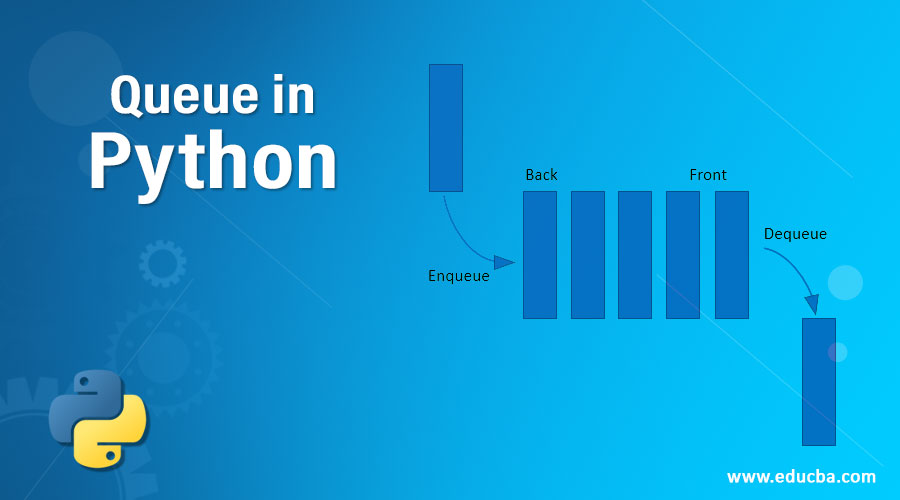

block - This parameter accepts boolean value. get(block=True, timeout=None) - This method will get the item from the queue if its not empty. The default value is 0 for it.īelow we have highlighted some important methods of the queues which we'll be explaining in this example. If we give 0 or negative value to this parameter then it'll create a queue of size infinite else queue of the size given as a positive number. It has an optional parameter named maxsize which accepts the size of the queue. We can create a FIFO queue by just creating an instance of Queue class. Please make a note that all examples below are run with Python 3.9.1 and the output sequence can significantly change if run more than once or on the different operating systems due to their internal thread handling.Īs a part of our first example, we'll explain with a simple example how we can use Queue to create a FIFO queue and access its data through multiple threads. We'll be explaining the usage of these queue with simple and easy to understand examples. As a part of this tutorial, we'll be introducing how we can use these three kinds of queues for storing data in a multithreading environment where multiple threads will concurrently access and modify data stored in them. It'll return the lowest value entry first.Ībove mentioned class makes sure that threads access is synchronized. PriorityQueue - This class provides a priority queue where each individual element of the queue is a tuple and the queue will be sorted based on the first element of the tuple using heapq module. LifoQueue - This class provides LIFO (Last In, First Out) queue (Stack). Queue & SimpleQueue - This two classes provided FIFO (First In, First Out) queue. The queue module provides three different kinds of queues to work with a multithreading environment. If you want to use queue data structure in a multithreading environment then it’s recommended to use queue module as its thread-safe. We don't need to worry about handling concurrent threads from accessing and modifying queue data structure as it'll be handled by the module itself internally. Python provides a module named queue which handles concurrent access to queue data structure by using lock semantics for us. #Python lock queue code
This will require us to add code each time we are accessing and modifying shared data which can result in bugs if locks are not handled properly (acquired and released in sequence).

It's quite easy to use these primitives to prevent part of the code from getting concurrent access. Python provides a list of lock primitives like Lock, RLock, and Semaphore which can be used to wrap the code which is modifying the shared data to make sure that only one thread executes the code hence only one updates data at a time. The process of modifying shared data concurrently can leave shared data in an inconsistent state if access to it is not synchronized. When working with threads in a multithreaded environment, it’s quite common to access and modify shared data multiple threads. Queue - Thread-Safe Synchronized Queues in Python ¶






 0 kommentar(er)
0 kommentar(er)
